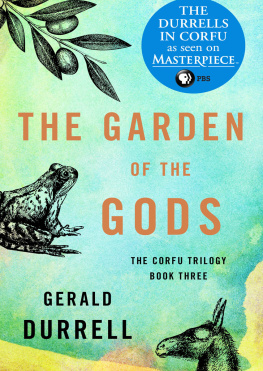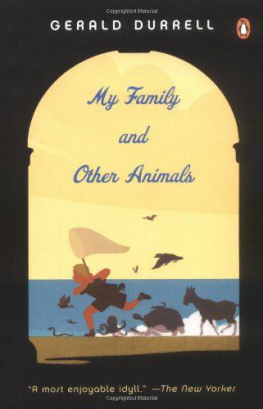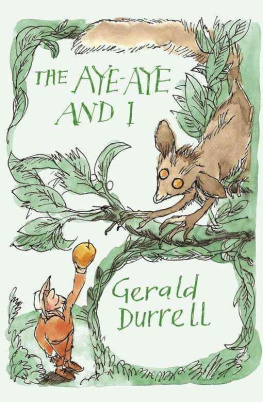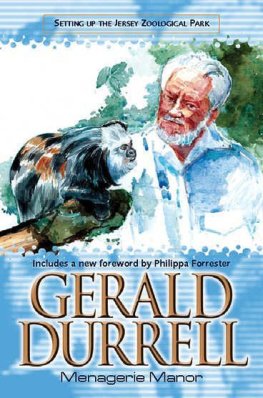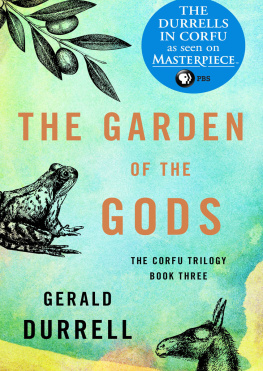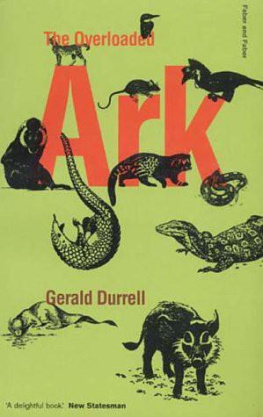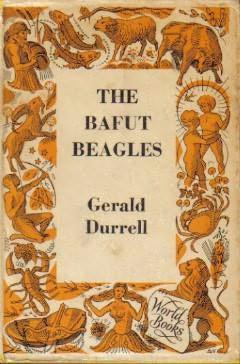THE DONKEY RUSTLERS

For Andreas Damaschinos,
my adopted godson,
who lives on an island
where this could well
have happened
The island of Melissa lies somewhere in the Ionian Sea. It is so tiny and so off the beaten track that very few people know about it. It is a lucky island in the sense that water is plentiful and so the countryside is lush with olive groves and cypress trees and at certain times great areas of it are pink and white with almond blossom. It is visited once a year by a small tourist boat which puts in to the port of Melissa and here the tourists tumble ashore and buy quantities of fake Greek antiquities, which are the local potteries chief source of income.
The island boasts a small foreign colony which consists of one very elderly Frenchman, who lives in a remote villa and very rarely puts in a public appearance. Rumour has it that he is recovering from an unfortunate love affair but to judge by the number of plump, pretty peasant girls he employs at his villa, he has found the right antidote for his sorrow. Then there are two elderly English ladies who spend their lives rescuing stray cats, doing good works and giving excruciatingly boring English lessons to those Melissiots who wish to acquire a knowledge of the English tongue.
That is, so to speak, the static population, but during the summer months the few people who know about Melissa (and who are wise enough) come and rent crumbling villas in the country where they lie in the sun, bathe in the lukewarm sea and every year become more and more devoted to the island and its charming, gentle inhabitants. Melissa is really a sort of looking-glass world where the term logic can never be used; on it practically anything can happen, and frequently does.
The Patron Saint of Melissa is Saint Polycarpos. He had once, during his travels in 1230, been blown off course by a sirocco and had been forced to stay in the island until the weather cleared up. As a token of his gratitude for the hospitality shown him, he presented the island with a pair of elderly slippers. The Melissiots, enchanted with this generous gesture, immediately made him Patron Saint of the island, and the slippers (carefully enshrined) became the focal point for every religious ceremony.
In the northern part of the island there is a small village called Kalanero. It is perched up on the hillside and down below it there is a flat, fertile area which is cultivated and which leads to the sea. The villagers get up every morning and go down the hillside and it is a good two or three miles on their donkeys to cultivate their various crops. In the centre of the village there lies a large Venetian villa which has been decaying in the sun for the last three hundred years or more.
For a great number of years, the villagers of Kalanero regarded this villa with some animosity because the few people who came to stay there never rented it, and so, while other villages could boast that they had villas which were inhabited by foreigners, the people of Kalanero could not. Then there arrived the Finchberry-Whites.
The father, Major-General Finchberry-White, was the personification of what the people of Melissa think an Englishman should be. He was tall, inclined to be a little portly and always walked everywhere with the air of one who owns the place. But he really was a Melissiot at heart. He had an obscure gift at least obscure as far as the English are concerned and that was his mastery over languages. I cannot, off hand, recall the number of languages there are in Europe, but however many there are, he spoke them all with the fluency of a native. So he had the immediate attraction to the local peasantry of an Englishman (of all things) speaking Greek. He had another attraction too; he had lost a leg and had an articulated aluminium one on which, in moments of stress, he played complicated African drum rhythms. When he discovered the villa in Kalanero and immediately rented it for a very lengthy period, the villagers were, of course, delighted. Now they not only had an Englishman living in their midst, but a Greek-speaking Englishman and, moreover, one who was obviously a war hero since he had lost his leg. The village was divided into two schools of thought as to how he had achieved this. One half insisted that he had done it while taking Rome single-handed; the other half were convinced that he did it while taking Berlin single-handed. The fact that he had lost it through getting rather drunk and falling down a flight of stairs in a friends house in Chelsea had not been vouchsafed to them. But it really was his command of the Greek language that endeared him to them most.
The Major-General had only one ambition in life, and that was to paint, but owing to his leg he could cover only very short distances. This is the reason that he immediately rented the villa in Kalanero. It had a wide terrace which commanded a view of cypress trees with the sea as a background to them. So from this vantage point he could paint. He would set up his easel and paint numerous and excruciatingly bad pictures of cypress trees which he was under the impression were easy to draw and that, if you put plenty of colour behind them, could be made to look as attractive as anything in the Royal Academy. So, with a pertinacity that I am sure earned him his rank, he painted picture after picture from this same vantage point, to the utmost satisfaction of both himself and the villagers. who, of course, treated him with a reverence that would have done credit to a Rembrandt.
There was also, of course, a Mrs Finchberry-White and two children, a boy and a girl. The wife was one of those faded English women who once must have been very beautiful and was allowing herself to decay very charmingly. She spent her time drifting about vaguely, collecting wild flowers and organising thoroughly disorganised meals at irregular intervals. But of course it is the children who are, as it were, the hero and heroine of this story, David and Amanda.
All two hundred and fifty inhabitants of the village of Kalanero were, of course, aware of the impending arrival of the Finchberry-Whites and so the whole village was in a turmoil of excitement and activity. Certainly the most excited person in the village was Yani Panioti; of the same age as the children, Yani had become their particular friend, and from the very start he had fallen deeply in love with Amanda and was her devoted slave. His wiry body was burnt brown by the sun and his movements were as lithe as a cats. Under his thatch of hair as black as jet and as curly as wood shavings his huge dark eyes stared at the world with a disarming limpid innocence, or else flashed with wicked impishness. Now he whistled softly and tunefully to himself as he helped prepare the villa, and his heart was gay because Amanda was coming back to him at last.
So the great, creaking, sun-blistered shutters were thrown open in the villa and old Mama Agathi and her husband, who were caretakers, set to work sweeping up the accumulated winters spiders webs and scrubbing the white wood floors, while Yani himself supervised the sweeping and weeding of the great terrace. In fact, it is more than likely that the great terrace got more devoted sweeping and cleaning than The rest of the villa but this was only natural since it was the Generals vantage point.
Then one morning when the villagers awoke, they knew that the great day had arrived, for the Ionian Nymph (a small vessel with a list to starboard and a large hole In Its bows, which was Melissas only contact with the mainland) was due to arrive. In spite of its manifest unseaworthiness, the General liked to travel on it for, as he said, each voyage became a nautical adventure worthy of Raleigh or Drake. So the


